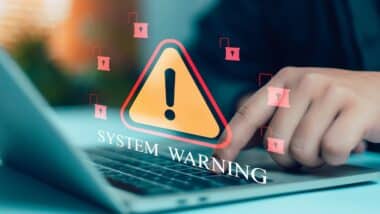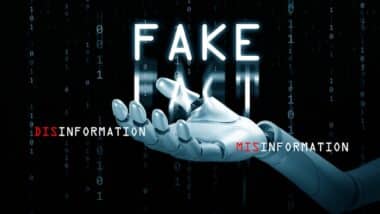Whistleblower lawsuit: Who’s affected?

Did you witness a business committing widespread fraud against the U.S. Government? You may qualify to file a whistleblower lawsuit. Please fill out the form on this page to learn more.
Federal law has powerful tools to fight fraud against the U.S. government, with special provisions that reward whistleblowers. The biggest areas to report are:
- Medicare fraud
- Medicaid fraud
- Defense contractor fraud
- Customs fraud
- IRS fraud over $10 million in underpayment of taxes
- Securities fraud from insiders
Each year whistleblowers receive hundreds of millions of dollars in whistleblower awards. If you have an eligible case, speak with a law firm that has helped people obtain some of those awards and has multiple Department of Justice Alumni.
Do you qualify?
If you have detailed information about a person or organization committing millions of dollars of fraud against the U.S. government, you may be eligible to receive a whistleblower reward.
Fill out the form on this page for more information. The whistleblower law firm Brown, LLC, consisting of former Department of Justice Alumni, will contact you if, and only if, you fill out the form with details about the nature and suspected amount of the fraud. Brown has recovered hundreds of millions of dollars, but past results don’t guarantee future success. Brown offers free, confidential consultations on matters they handle. On matters they don’t handle, they will decline without speaking with you.
What is a whistleblower?
A whistleblower provides crucial aid to the U.S. government by alerting the appropriate agencies about alleged fraud and other forms of alleged wrongdoing. This may involve companies and organizations that are breaking laws, engaging in fraudulent activities, endangering public health and safety or committing other serious transgressions.
While many may be aware of such wrongdoing, whistleblowers are the ones who step forward and report fraud to government programs. Importantly, anyone with knowledge or evidence of misconduct can become a whistleblower. Eligibility is not restricted to current or former employees of the organization, although most whistleblowers are. In some cases, whistleblowers may even be a corporate competitor.
Many whistleblower programs in the U.S. are designed to protect those who come forward. These programs typically offer safeguards against retaliation, such as demotion, harassment or termination.
Do I have a whistleblower case?
When individuals discover evidence of fraudulent activities against the government, they can file a whistleblower lawsuit. If successful, these whistleblowers may receive between 10% and 30% of the funds recovered by the government, creating a strong incentive for those with knowledge of fraud to come forward. These whistleblower provisions have proven to be one of the government’s most effective weapons in detecting and stopping fraud against taxpayers.
Instances of fraud and wrongdoing within organizations are subject to a variety of laws and government regulations. A significant portion of these laws allow private individuals to file a whistleblower lawsuit. These lawsuits are designed to shed light on wrongdoing and ensure the accusations are proven in a court of law.
In numerous instances, whistleblowers initiate these lawsuits as representatives acting on behalf of the government or in the interest of the broader public. These legal proceedings serve as a crucial mechanism for exposing and combating corruption.
To determine whether you have a whistleblower case, it’s essential to understand the types of fraud and misconduct that whistleblower laws and programs address. Some of these include:
False Claims Act (FCA): One of the first and most powerful anti-fraud laws, the FCA addresses fraud involving government funds or programs and prevents the government from being overcharged by contractors. This includes cases such as Medicare, Medicaid, TRICARE and pharmaceutical fraud where healthcare providers submit false claims for payment, as well as defense contractor fraud, Paycheck Protection Program (PPP) loan fraud and customs fraud. The law firm sponsoring this investigation only handles cases in which there is at least $5 million in fraud from a collectible defendant.
Securities and Exchange Commission (SEC): Whistleblowers can report securities fraud under the SEC Whistleblower Program, including cases of insider trading, misleading investors or falsifying financial statements. The law firm sponsoring this investigation handles cases from INSIDERS or those with very detailed information. The firm only handles cases in which there is at least $5 million in fraud from a collectible defendant.
Commodity Futures Trading Commission (CFTC): The CFTC Whistleblower Program allows individuals to report fraudulent activities related to commodity futures, swaps and other derivatives. The law firm sponsoring this investigation handles cases from INSIDERS or those with very detailed information. The firm only handles cases in which there is at least $5 million in fraud from a collectible defendant.
Internal Revenue Service (IRS): Individuals who report significant tax fraud or evasion can file claims with the IRS Whistleblower Office and may receive financial rewards for uncovering large-scale tax violations. The law firm sponsoring this investigation handles cases in which there is at least $10 million in fraud from a collectible defendant with highly detailed information.
Anti-Money Laundering (AML): Whistleblowers can expose money laundering schemes and other financial crimes, often tied to financial institutions failing to comply with laws designed to prevent illicit financial activity. Under the new AML Whistleblower Improvement Act, employee whistleblowers are protected from retaliation. The law firm sponsoring this investigation handles cases in which there is at least $10 million in fraud from a collectible defendant with highly detailed information.
If you have evidence of fraud, fill out the form on this page. An experienced whistleblower attorney will evaluate whether you may have grounds for a whistleblower lawsuit.
Understanding whistleblower rewards
Whistleblower programs provide financial incentives to individuals who can prove accusations of fraud perpetrated against the U.S. government. If someone reports fraud to government agencies, culminating in successful prosecution or a monetary settlement, the individual may be eligible to receive a percentage of the recovered funds.
The precise amount awarded to the whistleblower varies depending on the specific program and the particulars of the case. For instance, under the FCA’s provisions, whistleblowers can potentially receive between 15% and 30% of the recovered funds. SEC whistleblowers may be eligible to receive between 10% and 30%.
It’s important to note that these laws have specific requirements and procedures that must be followed to ensure eligibility for a whistleblower reward.
Fill out the form on this page to see if you qualify for a free case evaluation.
See If You Qualify
Join a whistleblower lawsuit investigation
Filling out this form is quick and easy. It only takes a few minutes to see if you qualify.
After you fill out the form, an attorney(s) or their agent(s) may contact you to discuss your legal rights.
ATTORNEY ADVERTISING
The choice of a lawyer is an important decision and should not be based solely on advertisements.
PAID ATTORNEY ADVERTISEMENT: THIS WEB PAGE IS AN ADVERTISEMENT AND THE PARTICIPATING ATTORNEY(S) ARE INCLUDED BECAUSE THEY PAY AN ADVERTISING FEE. Top Class Actions is not a law firm, lawyer referral service, or prepaid legal services plan. We do not endorse or recommend any third-party claims processing company, lawyer, or law firm who participates in the network. We do not make any representation, and have not made any judgment, as to the qualifications, expertise, or credentials of any participating lawyer or processing group. No representation is made that the quality of the legal services or claims processing to be performed is greater than the quality of legal services or claims processing performed by other lawyers or claims processing group. The information contained herein is not legal advice. Any information you submit to Top Class Actions does not create an attorney-client relationship and may not be protected by attorney-client privilege because Top Class Actions is not a law firm. Instead, your information will be forwarded to an attorney(s) or their agent(s) or a claims processing firm for the purpose of a confidential review and potential representation if you qualify. You will only be contacted by an attorney(s) or their agent(s) in response to your inquiry if your initial information appears to qualify you for representation. If you are not contacted by an attorney(s) or their agent(s) within one week, you should consult another firm since all legal claims are subject to filing deadlines. All photos on this website are stock art and do not depict clients.












